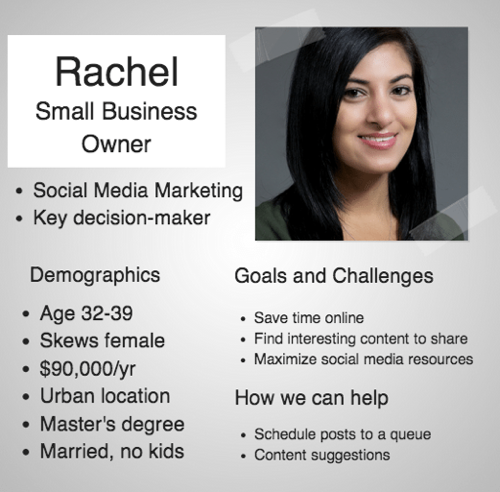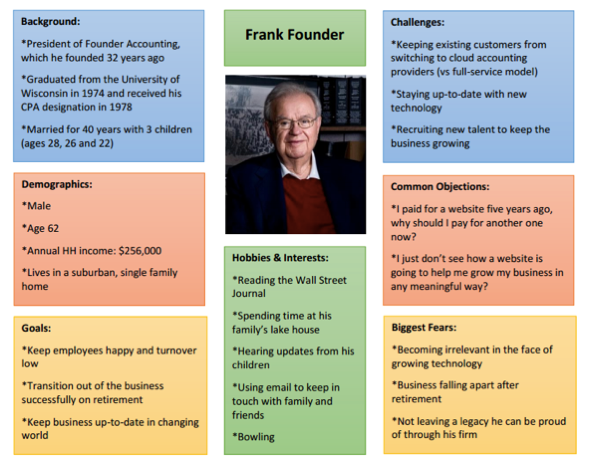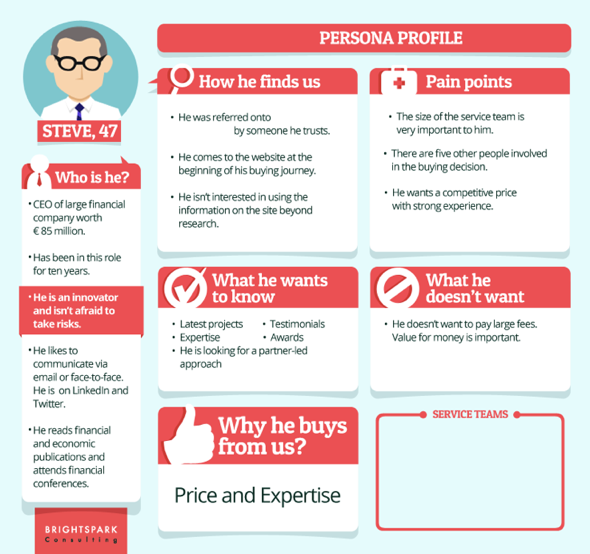Why buyer personas are important and how to create yours
Marketing isn’t a guessing game. The only way to create content and promotional messaging that truly engages your target audience is by defining your buyer personas first.
What’s a buyer persona, you ask? In simple words, it’s a profile that represents your ideal customer. Only when you know who that is, can you tailor your marketing efforts and connect with your target audience in a meaningful way.
After all, if you don’t know who your ideal customer is, what their wants, needs, and pains are, how are you going to sell your products and services to them?
In this article, we’ll explain what a buyer persona is, why it’s important to the success of your business, and how to create yours to engage your target audience, boost brand awareness, and drive more sales.
What is a buyer persona?
It’s a profile or a detailed description of your ideal customer that’s based on research. It includes information on everything from where they live and work, how much they earn, what their hobbies are, what they read and more. And this profile is put together in a way that makes it look like it’s a real person.
So, a buyer persona allows you to get a clear picture of what your ideal customer is like, including their goals, challenges and common objections to products and services, as well as other unique attributes.
Why buyer personas matter
Do you need buyer personas? Yes!
Why? Because you can’t create an experience that relates directly to your ideal customer if you don’t know who that is, can you?
Buyer personas help you understand your prospects and customers better, including what motivate and influence their buying decisions. And when you know who they are, and what their specific needs, pain points and concerns are, you can personalise your content, messaging, product development and service in a way that speaks to them.
It’s when people relate to your message that they become aware of your offering, taking them one step closer to buying from you.
Developing buyer personas can also shed light on questions that prospects are asking and what kind of answers you can provide to better nurture them as you guide them through the purchasing process.
So, for example, you may know your target buyers are single mums, but do you know what their needs, concerns and questions are?
Bottom line: if you want to get a full understanding of what makes your customers tick, it’s critical to develop detailed personas for your business. Otherwise you’re just guessing. And guessing never pays off.
How to create personas
Now that you know how important personas are to your business, let’s look at how you can develop yours.
The strongest buyer personas are based on market research as well as insights you gather from your actual customer base. So start by creating one to two personas. You can develop more later as your business grows.
When developing your personas, pay close attention to:
- Location
- Age range
- Interests
- Education level
- Job title
- Income level
- Questions
- Buying motivations
- Buying concerns
But where do you get all the information you need to make a persona take shape?
There are lots of sources, from your site statistics to actual conversations with customers.
Here are some places to get you started:
Your site and social media analytics – While Google Analytics or Facebook Insights can’t tell you who your ideal customer is, they can provide demographic data about the people who are currently interacting with your site and social profiles. Read our guide to Google Analytics and take our business course on social media where you’ll also find a section dedicated to Facebook Insights & Twitter Analytics.
Your forms – Use the forms on your site to capture important persona information, such as location, age, occupation, age, income.
Interviews and surveys – Talk to your prospects and customers via phone, email, chat or in person to find out more about them, including what they like or dislike about your product or service.
This is a fantastic opportunity to also dig into their answers and follow up with the goals, values, and pain points that will resonate the most with them. In this article you can find out more about using surveys, including the various options for carrying out surveys.
So what questions should you ask? Here are some examples that can help you create a persona profile:
- What publications or blogs do you read?
- Which social networks do you use?
- What does a typical day look like?
- What are your biggest challenges at work and at home?
- What are your career goals?
- How tech savvy are you?
- How do you prefer to communicate – email, phone, social media, face-to-face?
- Do you use the internet to research vendors or products? If yes, how do you search for information?
Quora – This is fantastic tool where you find out what questions people ask when it comes to your industry, business, products or services.
There are lots of other tools you can use to learn more about your customers. This awesome list includes 11 tools that can come in handy when researching your (ideal) customer.
Putting together your buyer persona template
Ok, now that you’ve gathered all that great information, it’s time to use it to put your personas together!
Here are some examples of how you can organise everything into a simple buyer persona template. Note how each example uses basic information to build up a picture of a potential customer group:
How do you use personas in your marketing?
Developing personas enables you to create relevant content and messaging that appeals to your specific target audience, rather than a crowd.
It also allows you personalise your marketing for different segments of your audience.
For example, instead of sending the same email to your entire mailing list, you can segment by buyer persona and tailor your messaging according to what you know about those different personas.
You can use personas in every area of your marketing, from site content and email to social media ads. And because you know who your ideal customer is, you’ll know what type of message will better resonate with them.
Wrapping up
Make sure you take the time to develop buyer personas for your business. It’s the only way you can create content and launch campaigns that not only sing to your audience, but can also help your business succeed online.



